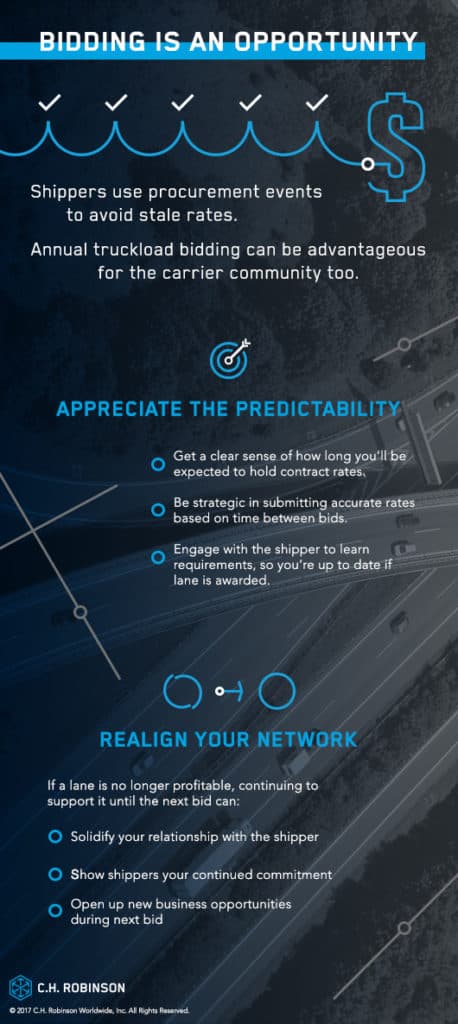
In a previous post on The Road, Kevin Rutherford explained that building logistics relationships, rather than chasing the lowest rate on load boards, is a good way for truckload carriers to stay profitable. When you start working with shippers or third party logistics providers (3PLs) regularly, they may ask you to participate in a bid as part of a procurement event.
While it’s true shippers are trying to secure a competitive truckload rate, there’s more you need to consider when submitting a bid. This post is the first in a series that offers tips for your next truckload bidding season.
When a shipper conducts a procurement event, they use the bids to establish a routing guide. This guide is a list of carriers, ranked by the company’s preference for who to work with—rates play a large role in this ranking, but other factors are also considered.
You might notice that shippers and 3PLs tend to update rates every twelve months. That’s because research indicates that as truckload rates age, carrier networks change, service levels diminish, and a shipper’s savings on rates start to disappear. Typically, 328 days after a procurement event, all savings are gone.
A stale rates example
The reason rates “go stale” as time passes is because changes happen. Let’s consider this example. Acme Products asks for truckload bids every January. They have loads starting in Indianapolis to eight customers across three states: Michigan, Illinois, and Kentucky. Shipments R Us is a carrier that submits a bid for five shipments a week to Kentucky because they have currently have a deadhead from Kentucky to Indianapolis.
Eight months after the bid from Acme Products, Shipments R Us loses their customer in Kentucky and can’t secure another. The rate they promised Acme Products isn’t profitable anymore. So they stop accepting tenders for that lane. Acme Products is then forced to use a carrier with higher rates (and perhaps lower service levels) from deeper in their routing guide.

With the right amount of planning and foresight, you can use regular bidding cycles as an opportunity to be strategic about your business—reduce deadheads, build relationships, and develop a service area that best suits your business.
This is only the first of our four part series on having a strategic bidding season. Look for part two in the coming weeks.



